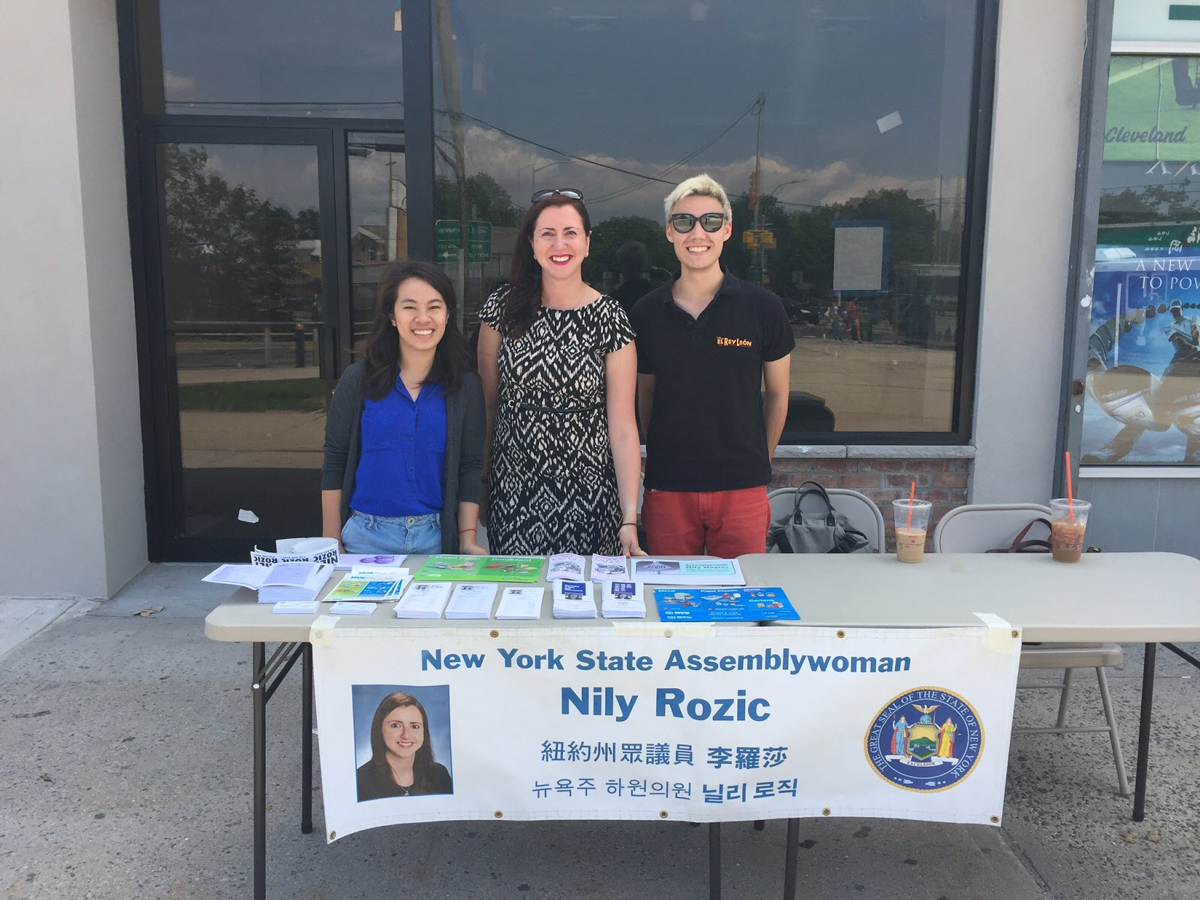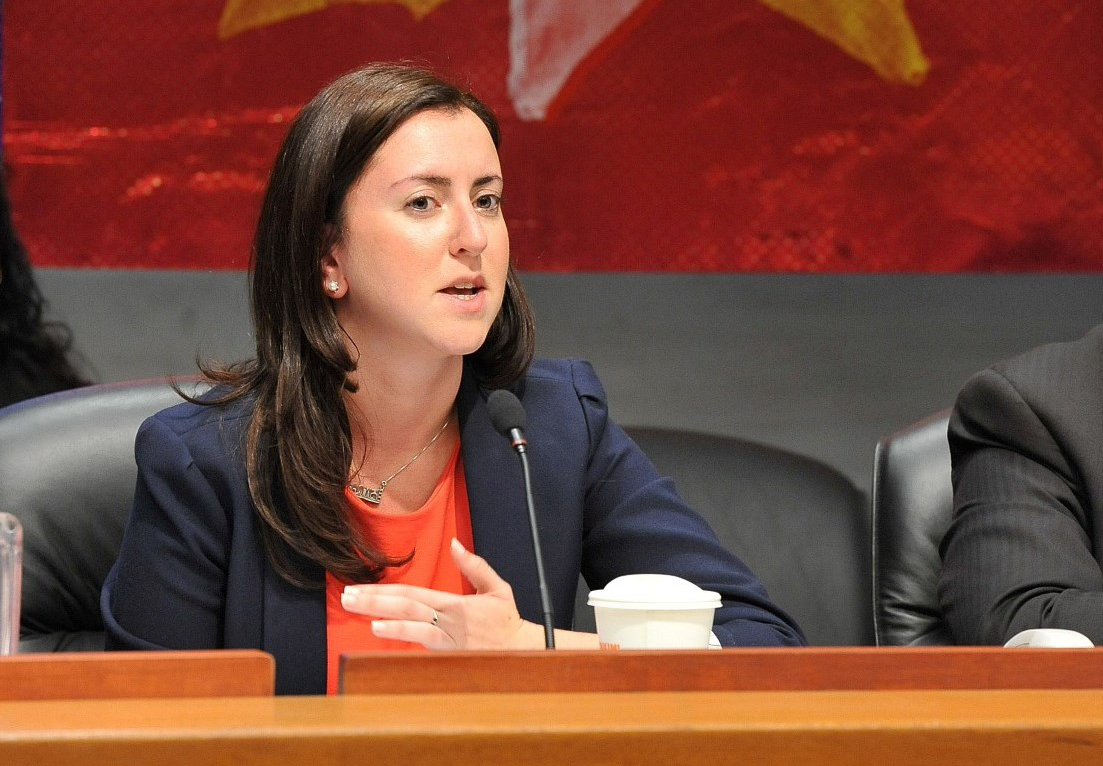You’d have to be sleeping under a very large rock (with no WiFi) to miss the fact that sexual harassment and abuse is a very big deal in the current news cycle. Starting with the epic takedown of Harvey Weinstein, and moving onto others like James Toback and now Kevin Spacey, it seems the media is catching on to what many have known for a very long time, which is that sexual harassment and abuse is rampant in Hollywood—and as proven by the #MeToo campaign—our society at large.
So it shouldn’t be a surprise that it’s an issue in the world of modeling, too. But unlike other industries that at least have laws in place against sexual harassment in the workplace (whether they’re enforced or not is another story…) models have existed in a grey area, not protected by the agencies they work for nor the companies hiring them for contract jobs.
A 31-year-old Jewish woman from New York is trying to change that. Nily Rozic, who was born in Jerusalem and now resides in Queens, was elected Assemblywoman of New York’s 25th District—which covers the northeast portion of Queens—in 2012, becoming the youngest woman in the state legislature and the first woman ever to represent the district (and the only Israeli-born member to boot).
These days, she’s set her sights on a bill that would finally offer models in New York protection from sexual harassment in the workplace. As written about recently in Vogue, Rozic has been working closely with the Model Alliance, a not-for-profit labor organization for fashion models, to ensure that the bill would end decades-long systemic abuse that has largely gone unreported in the fashion industry.
Over e-mail, I was able to ask Assemblywoman Rozic about the inspiration for the bill, why she got involved in state politics, and her ideal bagel (naturally).
What was the impetus for introducing this bill? Why models? Why now?
I’ve been working on this bill for a few months now. This legislation is no different from any other measure that aims to protect the well-being of workers on the job; Sexual harassment is an issue across the workforce but it is an all too common reality in the day-to-day life of models. As the discourse across the news revolves around recent high-profile cases of sexual harassment and discrimination, it is critical that we work to protect other victims that are often silenced in the face of power. Models are particularly vulnerable as they are often young and the harassment comes from those with the power to make or break their careers and dreams making the thought of speaking out terrifying.
What is currently wrong with the system that fails to protect models from sexual harassment and abuse?
Due to a loophole in the law, many modeling agencies in New York exploit the “incidental booking” exception clause under New York’s employment agency laws claiming that their involvement in securing modeling work for models is merely incidental to their services of career management. This loophole allows agencies that claim to be management companies to escape licensing requirements, avoid caps on commissions, and accountability to the models whose interests they represent. This bill creates accountability in the industry by making it an unlawful discriminatory practice for a modeling entity, whether it be a management agency or company, to subject a model to harassment, regardless of their status as an independent contractor or employee. Harassment includes but is not limited to unwelcome sexual advances, requests for sexual favors, and harassment based on age, race, national origin, color, sexual orientation, sex, and disability.
Have you spoken with any models about their experiences with harassment/abuse?
Just last week I sat down with over 15 models to discuss their experiences with sexual harassment on the job. It was heartbreaking to hear that the common threads that tie these young women together are a shared narrative of sexual harassment. I have been working closely with the Model Alliance, an organization for models that works to increase labor protections and better their working conditions. This bill is a small step toward that end.
What do you foresee as the biggest challenge to getting this bill passed?
Awareness and education. Our goal is to make the workplace a healthy and productive environment for all employees and as more people start to realize how modeling agencies are able to skirt around the law, it’ll become an eye-opener as to why this bill is so needed.

What led to you becoming an assemblywoman?
When it comes to the lottery, you have to play to win. The same can be said for getting more women elected–more women have to run. That’s not happening as much as it should in this country. Women are 19.6% of Congress. 12 states have 0 women representing them in DC, including MS & VT, who have never elected a woman to Congress. Women are 25% of state legislators nationwide & hold 24% of statewide elected executive posts, including just 6 of 50 governorships. I saw an opportunity to represent the neighborhood I grew up in and to leave my community greater than I found it.
The shortage of women in office means a shortage of diverse, influential voices in the rooms where public policy is decided. We need to do more to ensure that women have parity in government, and the first step in doing so is to encourage more women to run for office.
What is it like to be a young woman in your field? Any particular challenges or benefits?
Despite the challenges, being a role model and a voice for my generation is a motivating factor. I see it as an opportunity to show others that they too can have an active role in politics — whether it be on the local, state, or national level.
Who are your inspirations?
A cross between Golda Meir and Beyoncé.
What’s your favorite Jewish holiday?
Hannukah — who doesn’t love an 8 day holiday that involves donuts, candles, and dreidels?
Describe your ideal bagel:
Whole Wheat everything!



